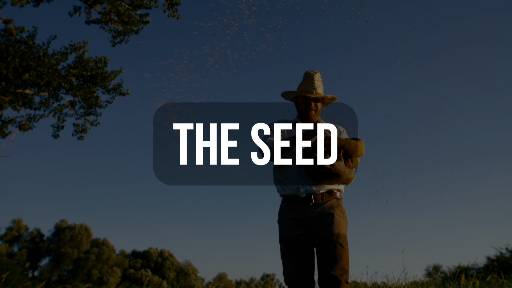-
Don't Worry About The Weeds Series
Contributed by Tellison A Glover on Nov 28, 2017 (message contributor)
Summary: An exegesis of Jesus' Parable of the Wheat and the Weeds
Do not worry about the weeds Pentecost 6
Matthew 13:28b The slaves said to him, `Then do you want us to go and gather them?' But he replied, `No; for in gathering the weeds you would uproot the wheat along with them. Let both of them grow together until the harvest.
In today’s gospel Jesus, once again, uses agricultural language in this parable. Just like parable of the seeds Jesus uses agricultural language to bring for revelation about the kingdom of God. He uses the ordinary things in nature to reveal his mind. Although I like to use Barth and McGrath and Brown and Wright and theologians of eminent degree – scholars who have written copious material to interpret the bible and have applied tools of hermeneutics and exegesis and literary criticism- and I have found that sometimes we make things too complicated; that we become so theologically sophisticated that it goes right over the heads of persons that need it the most. Sometimes all I need to know is that Jesus saves. Sometimes all I need to know is that Jesus died for me; that he came that I might have life; and that he loves me. I just thank God for Jesus who comes down to my level and makes the word of God so simple that even a little child can understand it. And he makes it so simple that you don’t even have to go into the bible to find out the mind of God, you can just look at nature and get revelation. That’s why I thank God for Jesus who comes down to my level. I thank God for Jesus who breaks it down.
And so Jesus describes the kingdom of heaven as someone who sowed good seed in his field;
but while everybody was asleep, an enemy came and sowed weeds among the wheat, and then went away
1. It is important that there is an enemy. One of the greatest achievements of the devil has been to make the world believe that he doesn’t exist. Although he is not omnipotent he does have some power of influence in this world - and that he can walk into your garden and plant into your field. Know that the enemy is present with ill-will and ill-intention for your life. Know that while God seeks good the enemy seeks evil. Apart of the task of the believer is to know that the enemy is present. This is why Jesus unveils the plot of the enemy in John 10 when he says, that he has come to kill, steal and destroy (and might I add plant) but I have come that you might have life and have it more abundantly.
2. The plan of the enemy does not thwart the plan of God.
The enemy’s intention was to disrupt plans of the farmer. He thought that by planting weeds in his field that he would somehow discourage, distract and destroy what he was trying to accomplish… The first impulse of the slaves was to remove the weeds. Sometimes when weeds are placed in our life our first reaction is to get them. And so that’s probably why you want certain people out of your life - some of the people around you, some of your haters, some of your naysayers – the miserable ones, the gossiping ones, the negative ones, the ones who aren’t going anywhere, the ones who want to keep you back in life, the ones who mean you no good, the ones who messed up their life and want you to keep company with them... The first instinct is to root them up… But the master says to the slaves ‘don’t take up the weeds’, in other words leave them there… This goes against the norm of what good farmers do. In my mind it would be good to keep the weeds out. Life would be so much better if I could just get these dirty stinking weeds out of my life… If I could get the weeds out then my work environment would be better, if I could get the weeds out then my household would be better, if I could get the weeds out then my marriage would be better, if I could get the weeds out then my church would be better… but the master says no. (What do you do when God says no?)
`No; for in gathering the weeds you would uproot the wheat along with them.
In other words, if you take up the weeds then you run the risk of destroying the wheat as well. If you take up the weeds then you will completely disrupt the plans I have for the wheat. No ... do not take them up but leave them right there. For what the enemy has meant for evil I will turn into good. So even if though the weeds are in my life, I’m still growing; even though the weeds are in my way, I’m still producing; even though the weeds are rubbing me the wrong way I’m getting stronger, I’m growing taller, my roots are getting deeper. Tell somebody, ‘the weed don’t make a difference’… What the enemy has meant for my bad God is turning for my good. No weapon formed against me shall prosper and every tongue that rises up shall be condemned. For all things work out for the good for those that love the Lord and are called according to his purpose.

 Sermon Central
Sermon Central


